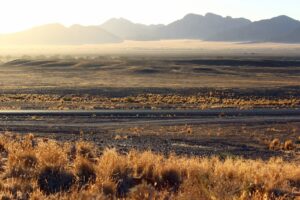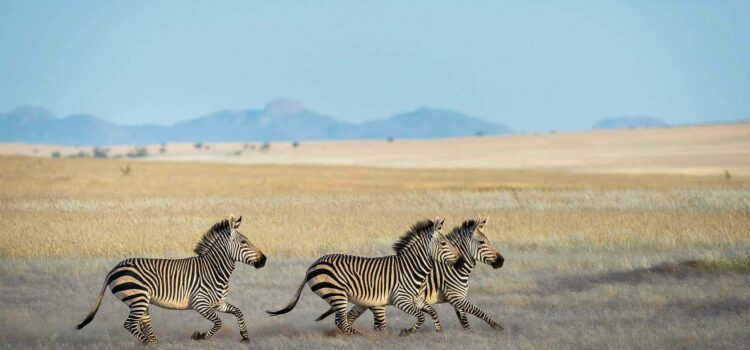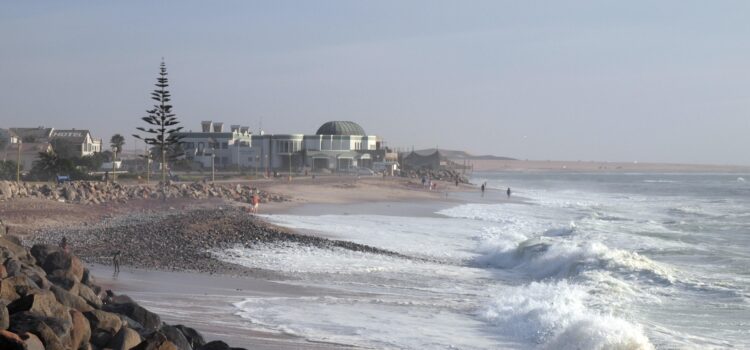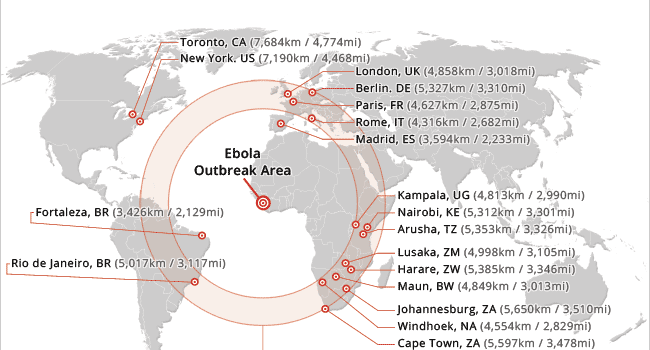The term flygskam (flight shame) was first used in Sweden in 2018 to describe the growing unease about flying experienced by environmentally conscious travellers.
Of course, flying is one of the lifestyle choices that we should all be thinking more carefully about if we have a chance of meeting our international carbon emissions targets. However, we believe there are many ways that we can reduce our personal footprint while still deepening our experience of the world and supporting countries such as Namibia who rely heavily on tourism income for infrastructural and social development, as well as for vitally important conservation.
Travel of all kinds is also, we feel, enormously important for our personal happiness. Nowadays there seems to be increasing pressure on all of us to juggle a meaningful career with perhaps raising a family, making time for friends and wider family members, and being a part of our community. With 24 hour rolling news we hear a lot more than we need to about problems in the wider world and it is easy to become overwhelmed. Travel to somewhere like Namibia allows us to experience ancient landscapes which remain largely untouched by human intervention. Experiencing vast open spaces, solitude, and pristine wilderness helps us to connect back to our priorities in life.
Travel is also an amazing experience to be able to share with family and friends, building on our relationships by spending quality time with each other. Not to mention the endless opportunities to reminisce over the photos in the months and years afterwards! We believe that travel is one of the most valuable experiences we can give our children in terms of learning about different lifestyles, alternative perspectives, geography, and wildlife, all whilst having an immense amount of fun outside of their normal comfort zones.
How worried should I be about the impact of my flights?
It is important to have a sense of perspective. Aviation contributes approximately 2% of the world’s carbon emissions, but the fashion industry emits more carbon than international flights and maritime shipping combined – a huge 10% – and methane produced by farm animals contributes around 8.7%.
How can we all reduce the impact that the flying we choose to do has on the environment? If you can, look at booking with airlines which use more fuel-efficient aircraft. The smaller, twin engine widebodies such as Boeing’s 787 and Airbus’s A350 are much more efficient than the large, four engine A380. Thankfully airlines are now moving towards these newer, smaller aircraft. Improving fuel efficiency means that per-passenger emissions on every flight have already halved since 1990.
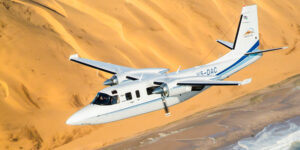
Pack light, the less luggage you carry the less fuel the plane will use! Most lodges in Namibia offer laundry services and we are happy to give you a list of the places on your personal itinerary that can assist. Packing light also leaves a little extra space for souvenirs and presents from the local craft markets or lodge gift shops…
Travel consciously; when I fly, I take my own refillable water bottle and coffee cup so that I don’t rely on the airline’s plastic cups or need to buy bottled water at the airport. I wash and re-use air socks and eye masks from previous flights. It’s a very small thing (which drives my family crazy), but if everyone did it, it would be a very big thing… More pressure from passengers will also encourage airlines to cut down on their waste: https://www.alternativeairlines.com/eco-friendly-airlines
You could also practise your own ‘carbon offsetting’ by making changes in other areas of your life? Participate in online business meetings where possible rather than travelling to see people physically. Enjoy short breaks in your home country and use public transport when you can.
Make smart decisions while clothes shopping. Keep your clothes for longer, mend them and exchange items with friends.
- ‘Less and Better’ – buy better quality clothes less often.
- Try to limit the number of denim clothes you buy; one pair of jeans uses around 2000 gallons of water to produce!
- Buy more second hand, ‘vintage’ clothes.
You could consider cutting down on the amount of meat that you eat; eat less and better-quality meat (free-range, organic), buy from farmer’s markets and eat as much local produce as you can. Eat vegetables and fruit in season and support small scale producers.
You might like to support conservation or social projects within the countries that you choose to visit, we already work with a small number of conscientious organisations who make a huge difference in Namibia. These are our recommendations:
https://www.namibia-aid.org.uk/ (Catherine Bullen Foundation)
http://www.savetherhinotrust.org/
Why choose Namibia?
- Namibia was the first African country to incorporate protection of the environment into its constitution, and the government has reinforced this by giving its communities the opportunity and rights to manage their wildlife through communal conservancies.
- Today, over 43% of Namibia’s surface area is under conservation management. This includes national parks and reserves, communal and commercial conservancies, community forests, and private nature reserves.
- More than 70 registered conservancies embrace one in four rural Namibians. A sense of ownership over wildlife and other resources is encouraging people to use their resources sustainably. Wildlife is now embraced as a complimentary land use method to agriculture and livestock herding.
- People are living with wildlife, including predators and large mammals, and are managing their natural resources wisely. They are also reaping the benefits. In 2009, community-based natural resource management generated over N$42 million in income to rural Namibians. All the while, the program is facilitating a remarkable recovery of wildlife.
- Namibia now boasts the largest free-roaming population of black rhinos and cheetahs in the world and is the only country with an expanding population of free-roaming lions. Namibia’s elephant population more than doubled between 1995 and 2008 from 7,500 to over 16,000 individuals.

Why choose ATI Holidays?
- We support a large number of lodges within the community conservation sector and include them in the majority of our itineraries. They employ and train local people, collect and pay out levies to the local community for infrastructural development projects, education, further training and wildlife conservation. They work with conservation organisations to engage with the communities about how they can live alongside wildlife whilst still protecting their livestock.
- Without visitors staying at these lodges and choosing to spend hard-earned money here, none of these uplifting developments would be possible. Local communities would still be living a subsistence life with very little access to medical facilities or education and no alternative income for farmers in drought years. The properties that are top of our list for community tourism combined with outstanding visitor experience are Etendeka Mountain Camp, Grootberg Lodge, Doro Nawas, Damaraland Camp, Hoanib Valley Lodge and Hoanib Skeleton Coast Camp, RiverDance, Jackalberry Tented Camp and Nkasa Lupala to name just a few.
- We have always specialised in self-drive holidays through Namibia as we believe it’s the best way to experience the country at your own pace and in as much solitude as you like, discovering cafes, craft markets and coffee shops along the way, and very importantly supporting a lot more small local businesses. In this way it’s not only the lodges which benefit from your stay but also the petrol stations, cafes, bakeries and food shops along your route.
- By using local lodge guides for each stay rather than a private guide citation generator for your entire tour, you will be helping provide more jobs and specialist training for people in remote communities. You will also have the benefit of being guided by someone who has specialist expertise in an area they have usually grown up in and have close personal ties to. All of this has an enormous positive impact on a country with over 50% unemployment!
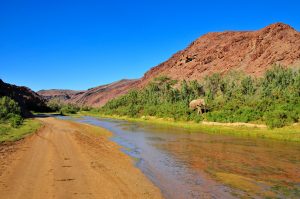
So, we urge you to continue travelling, make sure that Namibia is high up on your wish-list, and ‘Make your Miles Matter!’
